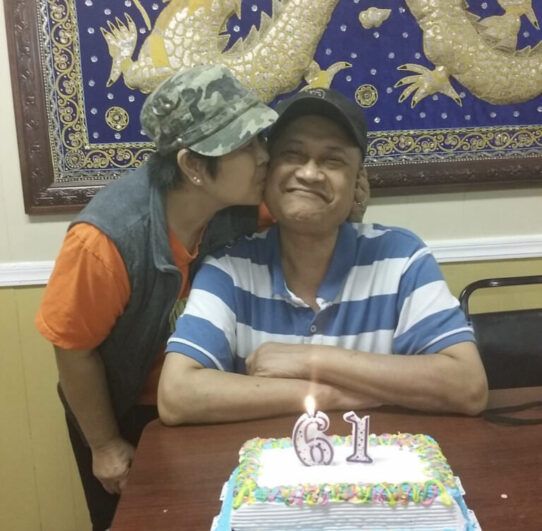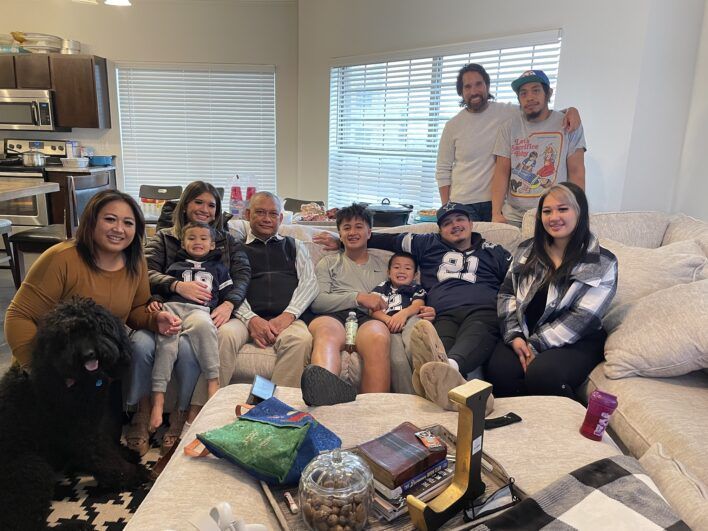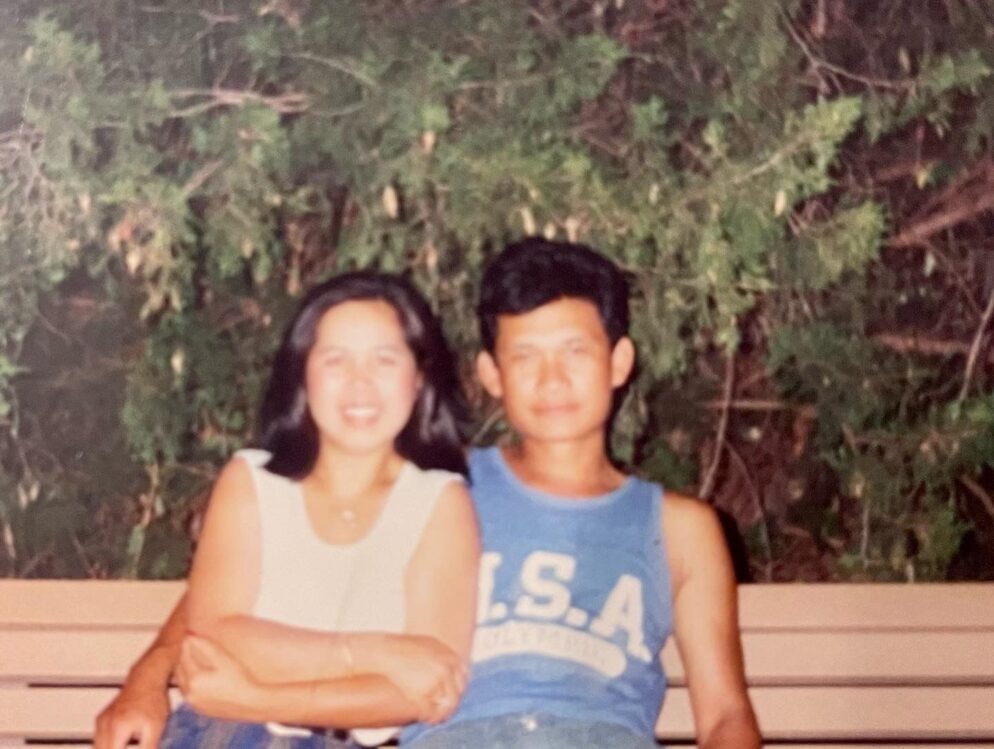By Ai Inthavong Lopez
The hardest part about a parent’s death is the moment you realize you won’t ever be able to talk to them again.
I won’t hear his voice again.
I can’t call him ever again to ask him what he wanted from the grocery store that week.
I can’t call him to hear him brag for an hour about his grandkids.
I have yet to make it through a day without my tears falling.
I have yet to make it through a moment in the shower without sobbing quietly as the hot water falls down my back.
I swallow through the heartache.
I have been putting off writing about my grief for some time now.
I miss him in a way that I can’t express.

As I sort through the journal entries of the time I spent with him in the hospital, the overwhelming sorrow that I experienced during that time fills me again.
Why do we always think we have more time?
My Daddy is supposed to be here!
He is supposed to show up at all the places I expect him to be.
I know I am supposed to keep moving and keep living, but I am still trying to make sense of something I can’t change.
Life does not prepare you to be the caregiver to your parents. There’s no book or class that teaches you how to advocate for a parent who is fighting for their life.
But you do what you have to do.
On May 13, the doctor told me that you were at the end of your life. I closed my eyes and held my breath. At that moment I knew that I had to start letting go.
The last words I spoke to you were: “If you are ready to go, receive your blessings. We will be okay. Go ahead and go.”
You had not responded to me in three days, but at that moment, in a strong voice, you replied, “Okay.”
You passed the next morning.
A week later we cremated you.
I didn’t even know your parents’ first names or how many siblings you had.
If they were alive or dead.
I didn’t know anything about how you came to America.
All I knew was how much you loved me because of how hard you worked to give me a life in America.

I watched how strong and stubborn you were.
I watched how you loved your grandkids in the deepest way but would never tell us you loved us.
It was all in your actions.
I saw in the last three years the sadness that consumed you from being here on earth without Mom.
Your grief took you from us and you didn’t know how to express it.
You swallowed it down with all the memories you had of a life I will never know about.
My father’s story can only be half told. Half of who my father was went with him.
Buried in his soul with his sorrow.
Trying to breathe life into my father took parts of me I never knew I had.
I will forever feel incomplete and have a piece of me missing.
The healing process comes in waves.
I have to make the choice to live.
To live the life that my parents fought so hard for.
To let his ghosts die with him and to carry on his legacy, even if it’s half told.
Ai Inthavong Lopez is a mother to four and a Lovey to three grandbabies from the Texas Panhandle. At 10 months old, Ai arrived in the US after fleeing Laos in 1981. She is an advocate for formerly incarcerated immigrants, refugees, and their families.

